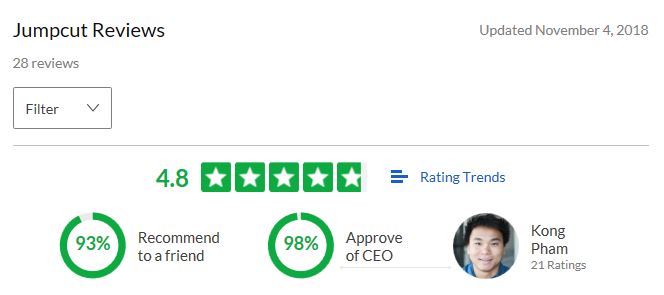
Space takes a perverse sense of pleasure in bringing Lola down, bending her to his will, because she’s a wealthy woman who could assert her own power if he wasn’t around to pull the strings. Indeed, he flies into a rage at the idea that she should be upset over all the unflattering coverage he’s gotten to hone her image as the “Blonde Bombshell.” His anger is rooted in misogyny. In Bombshell, her desire to be a mother is treated as a passing whim, just another thing that she’s interested in that particular week, but all the same, his interference is an assault on her ability to act independently and have agency over her own life. After orchestrating a brawl between her director and her boyfriend with a crowd of paparazzi to witness, he costs her the opportunity to adopt a baby boy that she’s fallen in love with. If there isn’t anything salacious enough for him to leak to the gossip magazines, he simply makes something up. As the studio’s publicity man, it’s his job to keep Lola in the news, regardless of how his stories affect her personal life. Everyone who is close to her is there not because of who she is as a person, but because of what she can do for them. When she refuses to allow Space into her dressing room, he disregards her and sticks his head through her window while she’s half-dressed anyway. She spends every day of her life hounded by men: her father, who uses all of her money to pay for his horse-breeding hobby her director, who seems to believe that she owes him her attention and gets jealous whenever she spends time with another man an aggressive stranger who repeatedly approaches Lola at the studio insisting that he’s her husband. It stars Jean Harlow as Lola Burns, a young starlet who carries the weight of her entire family’s fortune on her back, and is constantly being manipulated by the opportunistic machinations of Space Hanlon (Lee Tracy), the publicity man for her studio. We can see exactly how long that sort of behavior has been common in Hollywood by taking a look at Bombshell, directed by Victor Fleming in 1933 for MGM. Stripped of their own agency by predatory parent managers, as was the case for Britney Spears and Lindsay Lohan, they were exploited by the people who should have been taking care of them, and it’s only now that their legacies are being reevaluated. These girls were treated like sex objects and then ridiculed for it many developed unhealthy coping mechanisms and were blamed for that as well. They imply that, while these full-grown men had probably been fantasizing about said actress since she was 14 or 15, they wanted to celebrate the official date that they no longer had to feel gross about it.


The countdowns to a teen star’s 18th birthday that were so prevalent at the time are a perfect example.

There’s an unsettling, leering quality to the way that the press interacted with young starlets of the time, largely indicative of an industry dominated by straight white men who were never taught to question their own misogynistic tendencies. But in watching interviews on the Late Show with David Letterman or reading copies of Rolling Stone from that period, it’s shocking at how much abuse young, vulnerable actresses were expected to take from the media within our own lifetimes. Most of us who are of a certain age require constant reminders that 2000 was, in fact, over two decades ago. The 2000s don’t feel that far in the past, really. It also serves as an unofficial autobiography of Jean Harlow, one of Hollywood’s earliest starlets who faced endless manipulations by the studio machine before her tragic death at age 26.
#JUMPCUT REVIEW MOVIE#
What we see today from former teen stars finally getting justice for how they were treated at the peak of their fame is, in many ways, an echo of Bombshell, a pre-Code comedy that shines a light on the exploitation of the movie star. The exploitation of women, especially those on the cusp of teenagedom and young adulthood, has always been prevalent in the entertainment industry but we’ve only recently seen a larger societal reckoning that examines the problematic ways that the Britney Spearses of the world (and, in the case of classic Hollywood, the Jean Harlows) were treated by their studios, the press, and even their fans. As soon as there were pretty young actresses and singers in Hollywood, there were people waiting in the wings to take advantage of them.


 0 kommentar(er)
0 kommentar(er)
